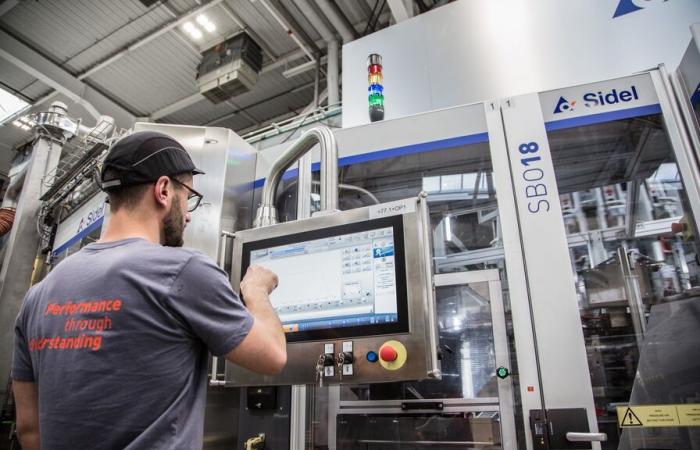50% of the environmental impact and cost of ownership of a beverage packaging line is represented by the blowing of polyethylene terephthalate (PET), namely the process allowing the preform to be transformed into a bottle. Based on this observation, Sidel offers its customers the opportunity to optimize both through Eco-Audit, a procedure for improving the production process. The bottling machine manufacturer highlights its 40 years of experience in the design of stretch-blow molding machines and its knowledge of packaging design.
Several parameters come into play, such as the quantity of material making up the bottle, its shape and process settings, which depend on the conditioner’s strategy and directly influence energy and compressed air consumption. Sidel cites the audits and tests already carried out at two of its customers, having made it possible, in the first case, to reduce the carbon footprint by 7 tonnes of CO2 equivalent and to achieve savings of 80,000 euros, and, in the second , to reduce the impact of 157 tonnes of CO2 and save 180,000 euros for a return on investment of a few months.
Three steps
The service offered is structured around three stages. During the first, the production process is analyzed in depth, the objective being to provide a report to the customer detailing actual consumption, their ecological and economic impacts and all potential avenues for improvement. The second level of the offer aims to implement all the simple adjustments allowing rapid savings in materials and energy. Finally, the third takes into account the transformation of the production tool, namely the installation of tools or options on the machines. Depending on the case, Sidel can also recommend improvements to the container (neck, design of the preform or bottle) in order to reduce the quantity of material and the blowing pressure, and assist the customer in the subsequent modification of their line. After blowing machines, Sidel should soon tackle the audit of bottle washers and pasteurizers, also known to be particularly energy-intensive equipment.
Selected for you






